A good night’s sleep is a precious commodity, and the right pillow can make all the difference. While we often focus on the type of mattress and bedding we use, the humble pillow plays an important role in achieving restful slumber. Small pillows, in particular, have gained popularity for their versatility and convenience. Whether using them to support your neck, enhance your comfort, or simply as decorative accents, small pillows are essential to any bedding decor.
However, selecting and using a small pillow is not as simple as it may seem. Many of us make common mistakes when choosing and utilising these compact cushions, often unknowingly compromising our sleep quality and comfort.
Mistake #1: Neglecting Pillow Fill Material
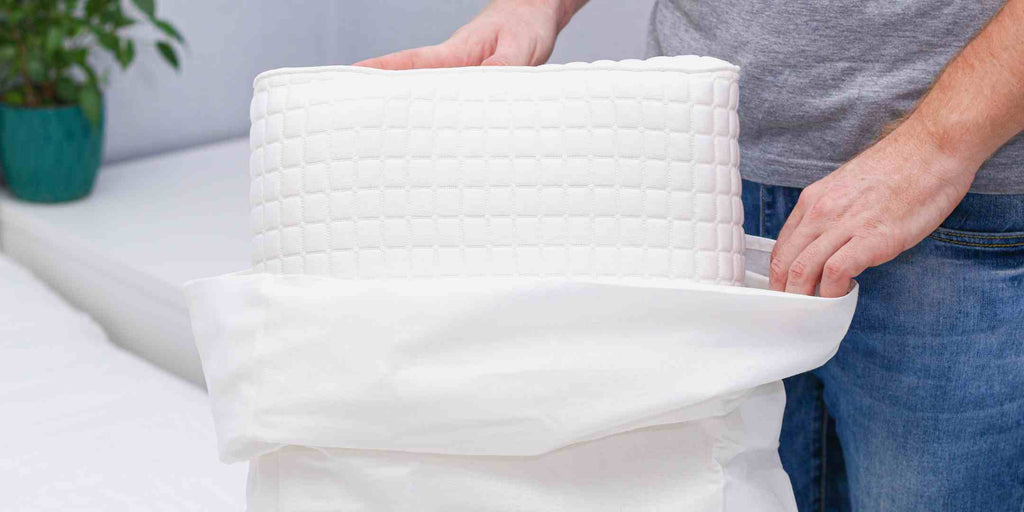
One common mistake when choosing small pillows is neglecting the importance of the fill material. The fill material greatly influences the comfort and support provided by a pillow. Some people might opt for inexpensive small pillows with low-quality fill, only to find that they quickly lose shape and support, leading to discomfort and poor sleep quality. Remember that neglecting the choice of fill material can result in pillows that are too soft, too firm, or even trigger allergies in some cases.
Importance of Fill Material
Pillow fill material refers to what’s inside the pillow, and it greatly influences its feel and performance because the choice of fill material can impact your sleep quality and comfort, making it essential to choose wisely.
Common Pillow Fill Materials
Memory Foam: Memory foam pillows conform to the shape of your head and neck, providing excellent support and pressure relief. They are ideal for individuals with neck and back pain.
Feather and Down: Feather and down pillows are soft and comfortable but may require frequent fluffing and offer a plush and luxurious feel.
Synthetic Fill: Synthetic pillows are often hypoallergenic and have various firmness levels. They are a more affordable alternative to natural fills.
Latex: Latex pillows are firm and supportive, offer excellent neck and spine alignment, and are resistant to dust mites and allergens.
Mistake #2: Ignoring Size and Support

Another significant mistake in pillow selection is ignoring the importance of size and support because many people underestimate the impact of these factors on their sleep quality and comfort. Using a pillow that's too large or too small for your body and sleeping style can lead to improper spinal alignment, resulting in neck and back pain. Neglecting to choose a pillow with the right level of support for your preferred sleeping position can also disrupt your sleep and lead to discomfort.
Importance of Selecting the Appropriate Size for Your Small Pillow
Proper Neck Alignment: The size of your pillow directly affects the alignment of your neck and spine while you sleep because incorrect alignment can result in neck pain and discomfort.
Enhanced Comfort: A correctly sized pillow ensures that your head and neck are adequately supported, leading to a more comfortable sleep experience.
Preventing Sleep Disruptions: Choosing the right size prevents constant adjustments during the night, allowing you to enjoy uninterrupted sleep.
How Size Relates to Support and Comfort
Too Small: If your pillow is too small, it won't provide sufficient support to your head and neck, leading to discomfort and potential pain.
Too Large: Conversely, a too-large pillow can force your head and neck into unnatural positions, causing strain and discomfort.
Right Size: The correct-sized pillow will help maintain the natural curvature of your spine, ensuring that your head and neck are well-supported throughout the night.
Mistake #3: Not Considering Pillow Thickness
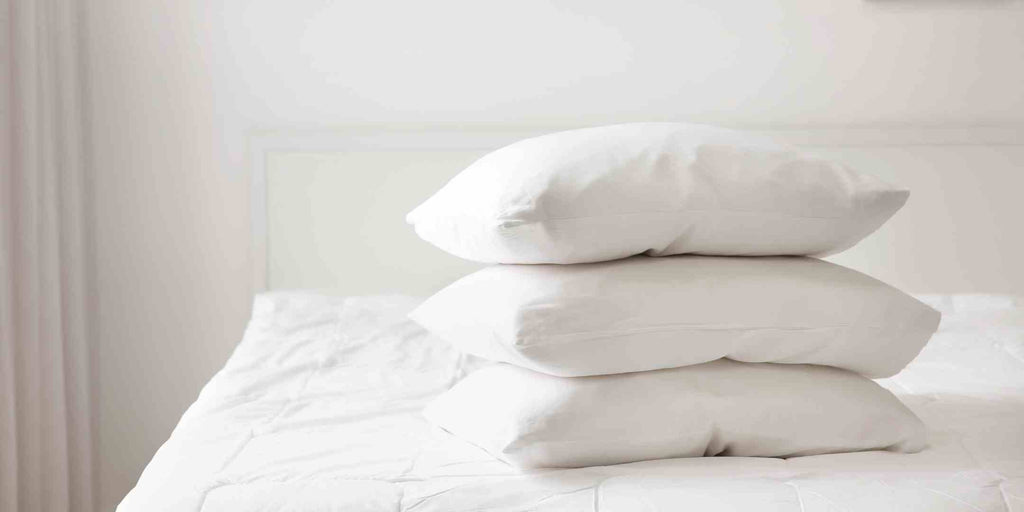
Pillow thickness is critical in providing proper neck support and alignment during sleep. Using a pillow that is too thick or too thin for your preferences and sleeping position can lead to discomfort, strain, and even potential sleep-related issues like snoring or sleep apnea. Failing to consider the pillow's thickness can result in restless nights and increased susceptibility to neck and back pain.
Impact of Pillow Thickness on Neck and Spine Alignment
Proper Neck Alignment: The thickness of your pillow plays a significant role in maintaining proper neck alignment while you sleep. When your neck and spine are aligned correctly, you're less likely to experience stiffness or pain.
Inadequate Thickness: If your pillow is too thin, your head may sink too far into the mattress, causing your neck to curve unnaturally and leading to discomfort and potential strain.
Excessive Thickness: Conversely, a too-thick pillow can lift your head and neck too high, causing misalignment and discomfort.
How Pillow Thickness Can Differ Based on Sleep Position
Back Sleepers: Back sleepers generally benefit from a medium-thick pillow that supports the neck's natural curve without propping the head too high. It ensures that the head remains in line with the spine.
Side Sleepers: Side sleepers need a thicker pillow to maintain proper alignment, and the pillow should fill the gap between the shoulder and ear, ensuring that the head and neck are level with the spine.
Stomach Sleepers: Stomach sleepers often require a thin pillow or none. A thick pillow in this position can strain the neck and disrupt alignment.
Combination Sleepers: If you switch between different sleep positions at night, consider a medium-thick pillow that can adapt to your needs.
Mistake #4: Overlooking Allergen Considerations

When choosing and using small pillows, neglecting allergen considerations is a common mistake that can have health implications, especially for individuals with allergies or sensitivities.
Importance of Hypoallergenic Options for Those with Allergies
Allergen Sensitivities: Many people suffer from allergies, such as dust mites, pollen, or pet dander. These allergens can accumulate in pillows and exacerbate allergy symptoms.
Hypoallergenic Pillows: Hypoallergenic pillows are an essential choice for individuals with allergies or asthma because they are designed to minimise the risk of allergen exposure.
Health Benefits: Using hypoallergenic pillows can lead to better sleep quality, fewer allergy symptoms, and improved overall health for those with sensitivities.
Mistake #5: Failing to Maintain the Small Pillow Properly
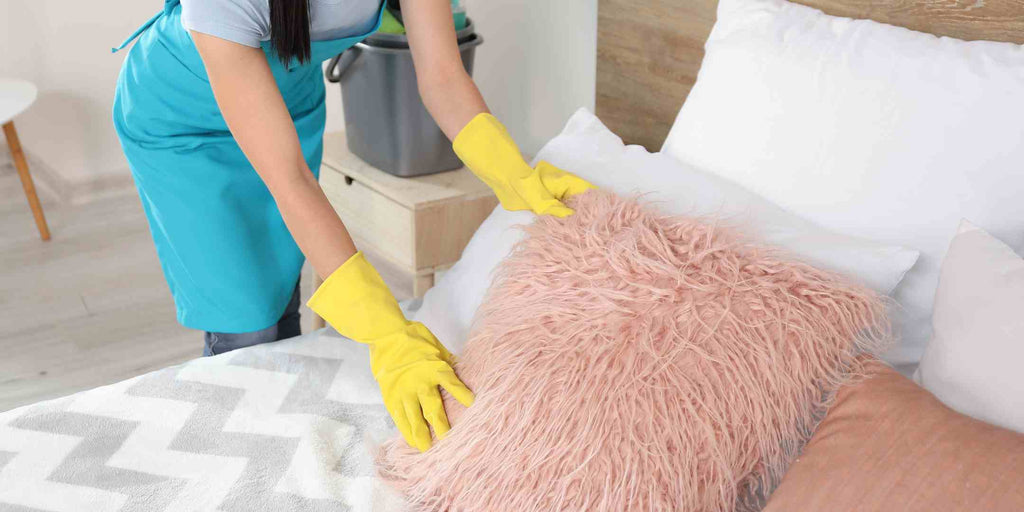
Properly maintaining your small pillow ensures its longevity, comfort, and hygiene. Neglecting this aspect can lead to a shortened lifespan for your pillow, diminished support, and potential health issues.
Why Regular Pillow Maintenance is Needed
Hygiene and Allergen Control: Pillows can accumulate dust, sweat, allergens, and bacteria over time, impacting your health and sleep quality.
Comfort and Support: Regular maintenance helps preserve the pillow's shape and support, ensuring a comfortable sleep surface.
Lifespan: Proper care can extend the life of your small pillow, saving you money in the long run.
Mistake #6: Not Using Pillow Protectors
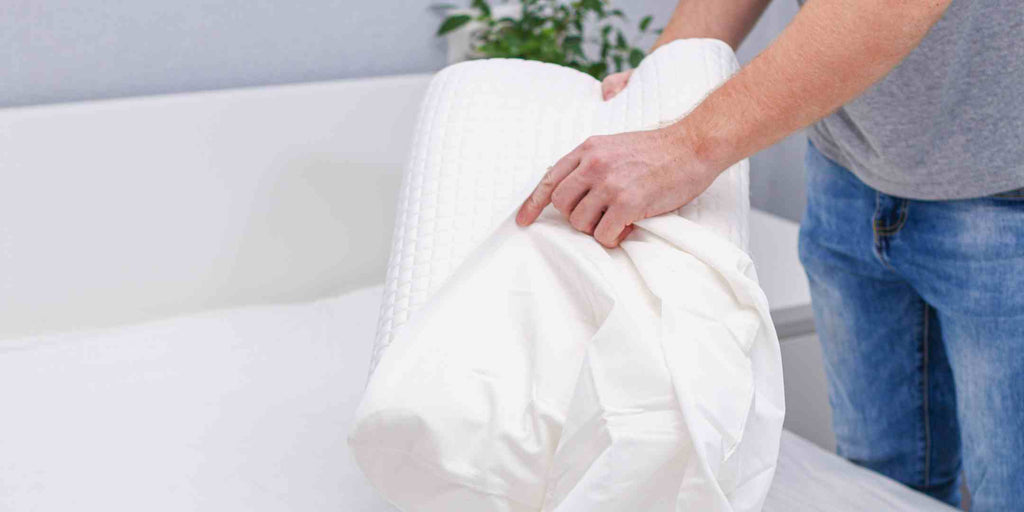
Pillow protectors are essential for maintaining the hygiene and longevity of your pillows because, without them, pillows can accumulate dust mites, allergens, sweat, and other contaminants over time, leading to potential health issues and a shorter lifespan for your pillows. Also, pillow protectors act as a barrier, preventing these substances from seeping into the pillow and making them easy to wash, thus ensuring a clean and healthy sleeping environment.
Benefits of Using Pillow Protectors
Hygiene: Pillow protectors help keep your pillow cleaner and more hygienic and act as a barrier between your pillow and your skin, hair, and body oils.
Allergen Control: High-quality pillow protectors are designed to be allergen-resistant, preventing dust mites, pollen, and other allergens from accumulating in your pillow.
Stain Prevention: Pillow protectors shield your pillows from spills, stains, and accidents, making them easier to clean and maintain.
Extended Lifespan: By reducing exposure to contaminants and wear, pillow protectors can extend the lifespan of your pillows, saving you money in the long run.
Easy Maintenance: Protectors are easy to remove and wash, making pillow care more convenient.
Mistake #7: Misusing Small Pillows for Decorative Purposes
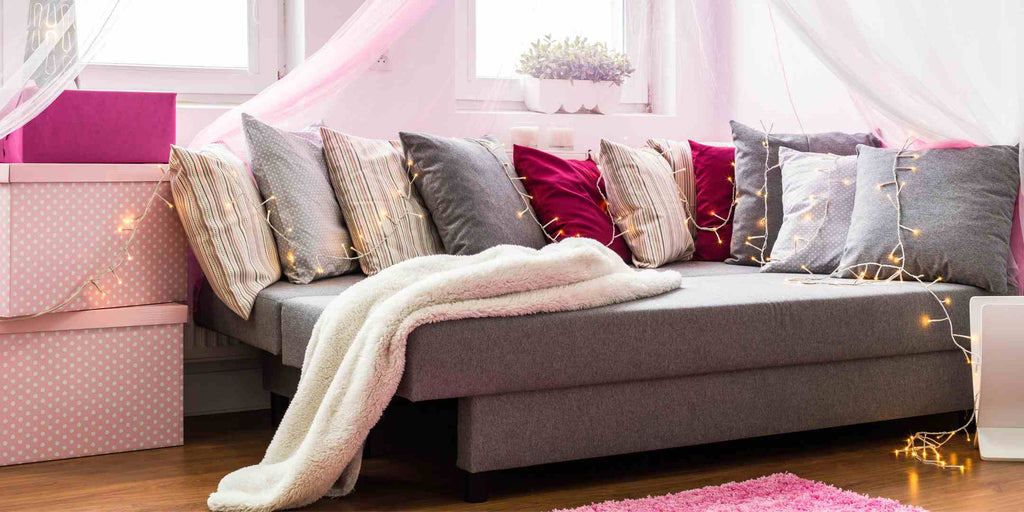
Who doesn't love having small pillows as decorative pillows for their bedding? Small pillows seem made perfectly for decorative purposes. However, while small throw pillows can add aesthetic appeal to a space, using them exclusively for decoration without considering their comfort can lead to missed opportunities for functionality. Therefore, balancing decorative and functional aspects is essential when incorporating small pillows into your home decor to optimise style and comfort.
The Dual Role of Small Pillows
Functional: Small pillows are primarily designed to provide support and enhance comfort while you sleep. They can offer neck and lumbar support or props for reading or watching TV in bed.
Decorative: Small pillows can also add a pop of colour, texture, and style to your bedding ensemble, as they can complement your bedroom decor and create an inviting atmosphere.
Caution Against Using Decorative Pillows That Sacrifice Comfort
Overemphasis on Style: One common mistake is selecting small pillows solely for their decorative appeal without considering their comfort and support qualities.
Uncomfortable Choices: Some decorative pillows may be filled with stiff or lumpy materials that don't provide the necessary comfort for a good night's sleep.
Sleep Disruptions: Using overly decorative pillows that lack comfort can result in discomfort and sleep disruptions, defeating the purpose of a good pillow.
Conclusion
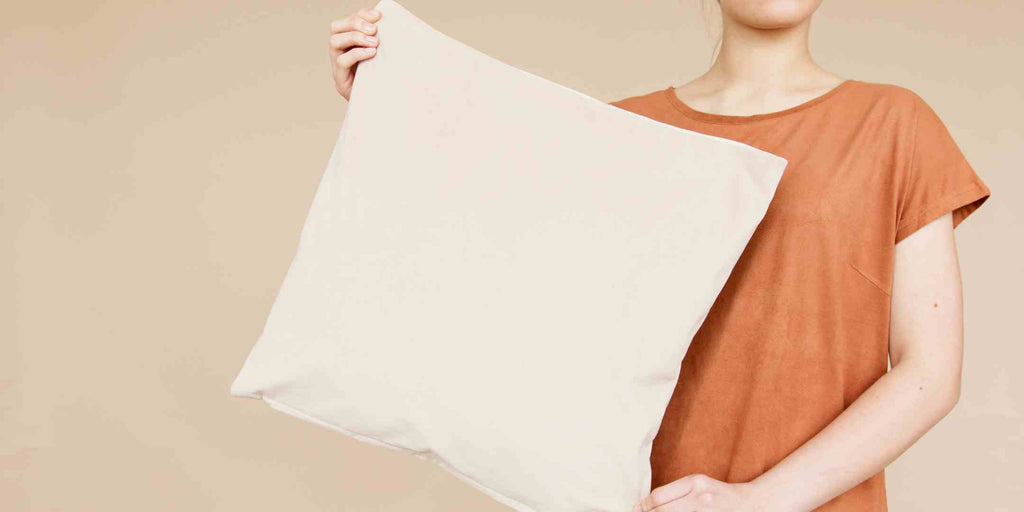
Overall, it is important to recognise that small pillows are versatile companions that can fulfil functional and decorative roles. However, the key to maximising their benefits lies in striking a harmonious balance between style and comfort.
Misusing small pillows for purely decorative purposes can lead to discomfort and sleep disruptions. Therefore, considering the various aspects of choosing, using, and maintaining small pillows, let us remember that these humble cushions can enrich our sleep experience when thoughtfully incorporated into our sleep setup. Understanding their potential to support us while we rest and accentuate the beauty of our bedroom, we can ensure that small pillows serve as both practical and aesthetic assets in our pursuit of a restful and stylish sleep haven.










